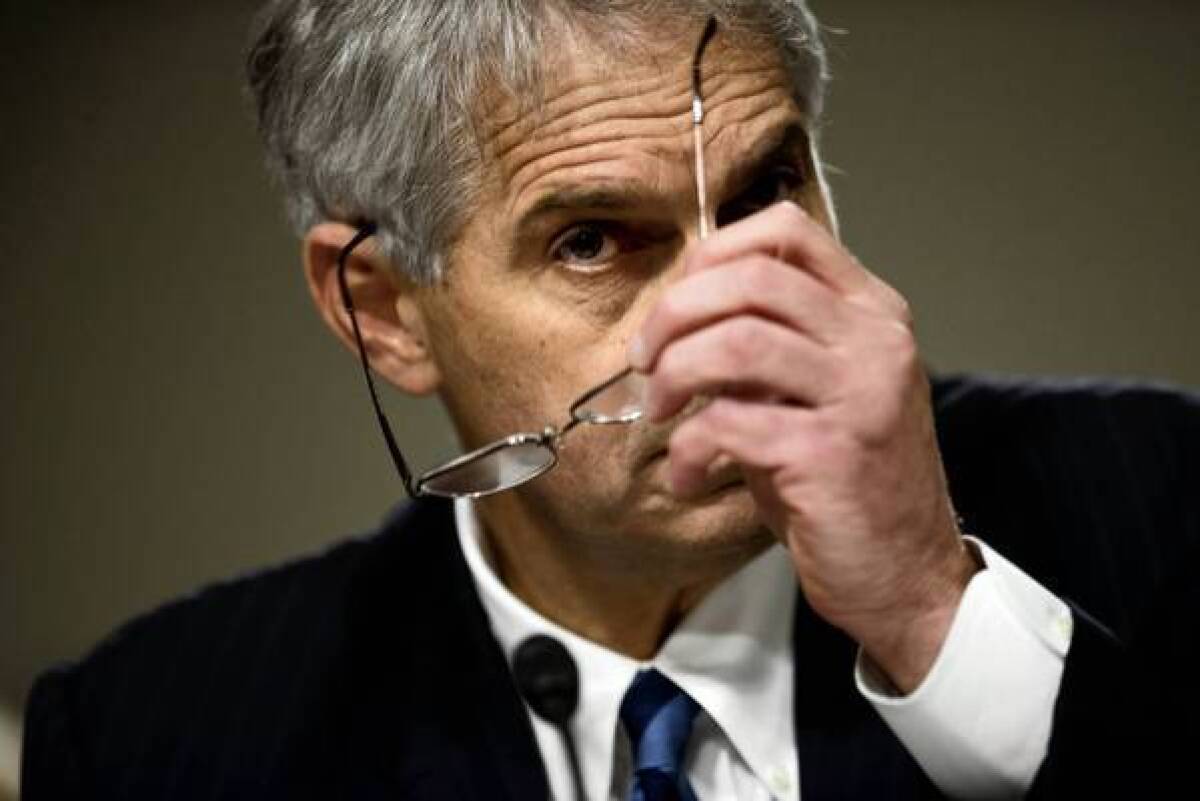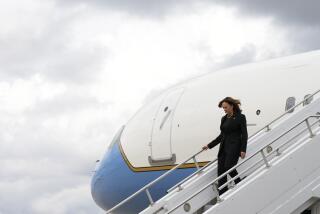Secret Service director says Colombia prostitution scandal was isolated incident

- Share via
WASHINGTON — The prostitution scandal that has embroiled the Secret Service is not evidence of a wider culture of boozing and paying for sex among those who are trained to take a bullet for the president, the director of the agency told skeptical senators.
The senators challenged Secret Service Director Mark Sullivan to explain how it was possible, without an atmosphere of permissiveness among the agency’s supervisors, that 12 agents could go out in separate groups on April 11 in Cartagena, Colombia, independently decide to bring women back to their hotel rooms, and then sign the women in at the front desk next to the agents’ real names.
“I’m confident this is not a cultural issue. This is not a systemic issue with us,” said Sullivan, speaking for the first time in public about the incident. Sullivan has worked for the Secret Service for 29 years, including two tours on the presidential protection detail.
“That type of behavior was just reckless,” he said.
But members of the Senate Homeland Security and Governmental Affairs Committee were concerned that these were not isolated trysts, and that the actions may be part of a larger culture of hard partying on the road that had routinely put agents at risk for coercion, blackmail and kidnapping.
“While you’ve maintained your faith in the Secret Service, going forward I think you have to assume that it wasn’t the only case,” said Sen. Joe Lieberman (I-Conn.), chairman of the committee.
“The facts so far lead me to conclude that, while not at all representative of the majority of Secret Service personnel, this misconduct was almost certainly not an isolated incident,” said Sen. Susan Collins (R-Maine).
A dozen Secret Service agents have been investigated for breach of conduct. Eight agents have resigned, retired or been fired. Two agents who resigned under pressure are challenging their dismissals, Sullivan said.
The investigation has widened to include at least 10 members of the military and two Drug Enforcement Administration officers accused of bringing prostitutes to a Cartagena apartment on a separate occasion.
After making his first public apology for the agent’s misconduct, Sullivan insisted that at no time was President Obama’s security at a summit in Colombia compromised.
The Secret Service agents under investigation had not yet been briefed about the president’s security plan before visiting local night clubs two days before the arrival of Air Force One. There were no weapons, sensitive information or equipment in the hotel rooms of the agents that night, he said.
Sullivan said that the agency had found no evidence that the agents under investigation had engaged in similar behavior on previous trips.
But other evidence of misconduct within the service was aired at the hearing.
There have been 64 allegations of sexual misconduct against employees of the agency in the last five years, most of which involved sexually suggestive emails. They include three allegations of inappropriate relationships and one “nonconsensual sex,” said Lieberman, who had been briefed on the allegations.
One Secret Service agent was fired in 2008 after being accused of trying to solicit sex from an undercover police officer posing as a prostitute in Washington. Three agents left the Secret Service after police found them drinking with women under the age of 21 at the 2002 Winter Olympics in Salt Lake City.
But Sullivan characterized these as isolated incidents. Fewer than 1% of the agents in the Secret Service are facing any type of disciplinary action, he said.
Since the investigation began, the Secret Service has banned agents from allowing foreign nationals to visit their hotel rooms during foreign trips and extended a ban on drinking alcohol from six hours before duty to 10 hours.
Internal investigators have not been able to prove some of the news reports about Secret Service dalliances. After a television news station aired a report last month about Secret Service members hiring prostitutes in El Salvador before Obama’s visit to the country in March 2011, Sullivan said he sent officials from the Office of Professional Responsibility to El Salvador to investigate.
But after thousands of dollars in travel costs and more than 20 interviews, Sullivan said, investigators were unable to substantiate the story.
More to Read
Sign up for Essential California
The most important California stories and recommendations in your inbox every morning.
You may occasionally receive promotional content from the Los Angeles Times.











